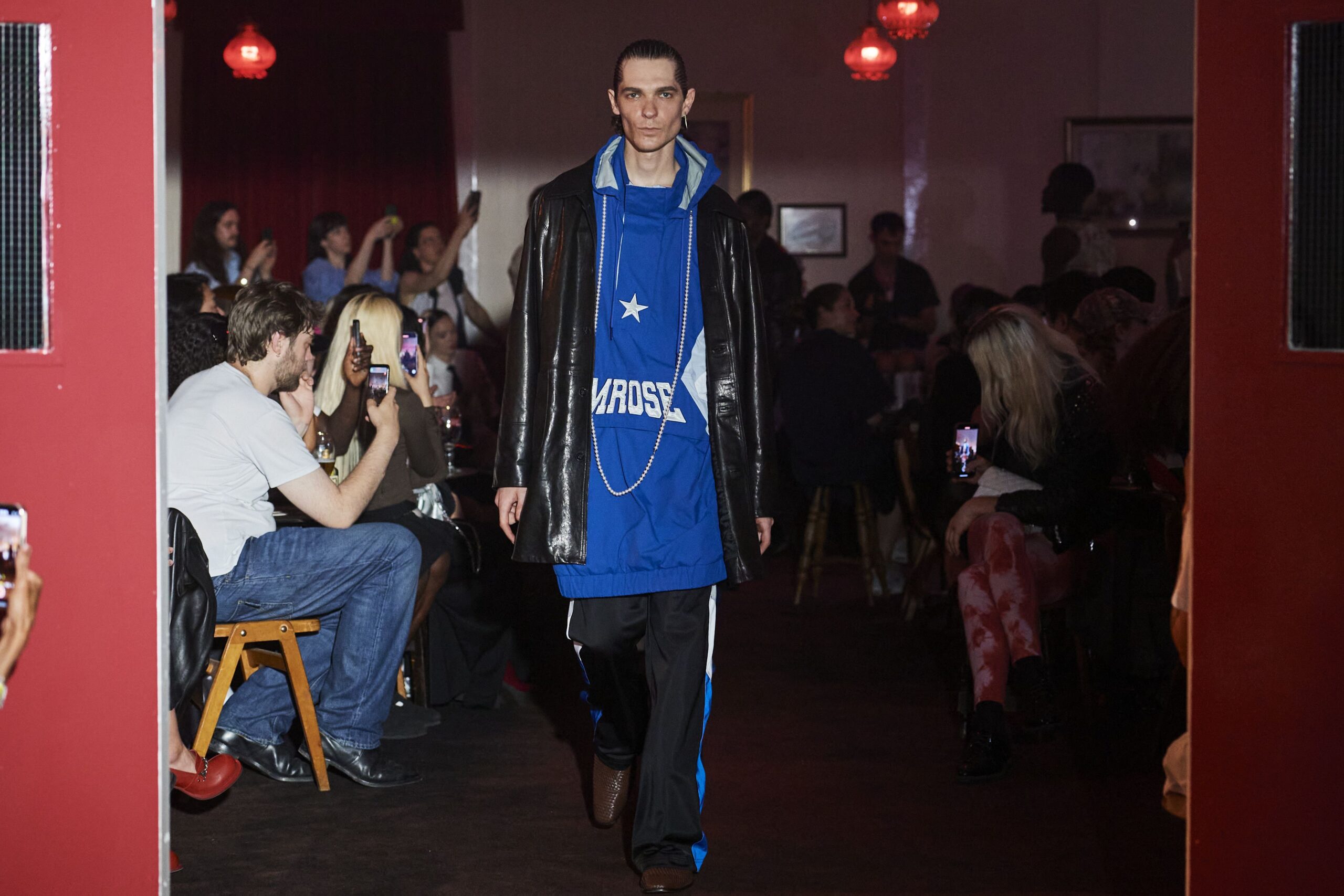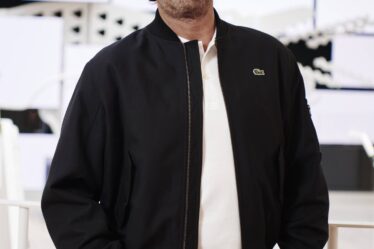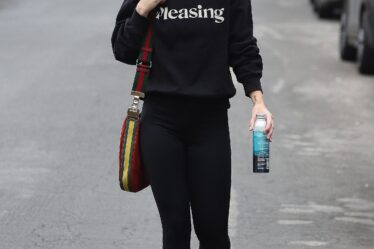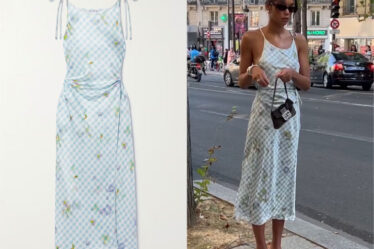
LONDON — The future of London Fashion Week’s June edition seems uncertain. What was once a dedicated menswear showcase populated with designers like Craig Green, Grace Wales Bonner and Bianca Saunders has become a lighter, less purposeful affair.
Of course, Martine Rose still shows in London and on a balmy Sunday evening, the designer took over a frozen-in-time community centre at St Joseph’s Church in Highgate.
The location held meaning. “Wherever waves of immigrants have come in — West Indian, Turkish, Polish, Irish — everyone has had their own community centres; they’re really important and vital,” said Rose backstage. “Before there were actual club venues, people from so many backgrounds co-opted community centres and youth clubs to put on their club nights.”
The venue set the scene for lived-in, sloping shouldered tailoring and beaten-up leather jackets paired seamlessly with nan’s negligees and mid-20th-century corsetry. High-vis workwear, cheeky slogan tees, 90s-era clubber fuzzy knits and a series of off-kilter shoes (thanks to the designer’s collaborations with Nike and Clarks) were also part of the mix.
A contender to succeed Virgil Abloh as Louis Vuitton’s menswear chief, Rose proved yet again why her sharp eye for sub-cultural references and blurring of gender lines continue to have such a powerful impact on menswear. Much like the designer’s recontextualised football shirts, you could see her mix of pearls and rose pink towel making it to the mainstream.
The next day, Saul Nash showed a collection titled “Intersections,” taking to a sand-filled room at the ICA to explore his family’s roots in Guyana, Mauritius and Barbados through the lens of his London upbringing. The results were thought-provoking: his signature urban tracksuits seemed strangely displaced as the models sauntered along a tropical beach set. Nash avoided “island life” clichés. The references to surf gear, swimwear and sailor’s attire were readable but never too literal.
Elsewhere, Daniel Fletcher showed a “see-now-buy-now” collection centred on Savile Row tailoring, while Bulgarian-born up-and-comer Antonio Vattev opted for a cost-effective lookbook released online. Vattev’s collection was an ode to Mick Jagger’s white dress stage ensemble as well as the check suiting he favoured, solidifying the designer’s masculine yet sensitive aesthetic.



